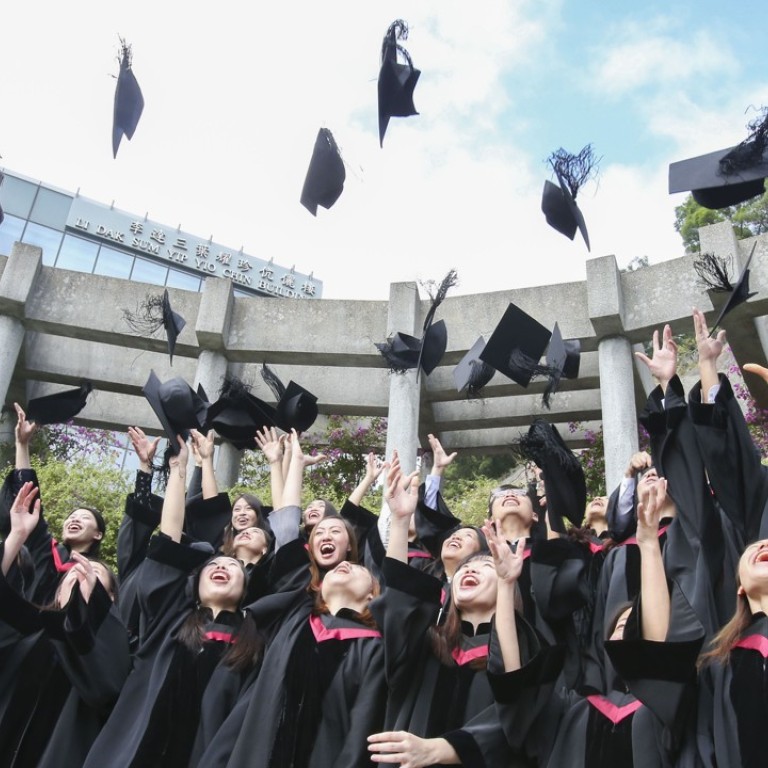
Closer ties to mainland bode well for Hong Kong’s scientists and scholars
Closer ties with the mainland will boost the formation of an innovative ecology in Hong Kong, with its universities being its engine and its brain
“Leaves that grow on a tree ultimately leave and return to where the roots are,” an old Chinese saying goes.
Born and raised in Hong Kong, I left the city after high school for college and postgraduate education in the United States. I spent most of my teaching and research career away from Hong Kong, and came “home” earlier this year to take up the office of vice chancellor and president of the
Chinese University of Hong Kong (CUHK). I am delighted the strong stem and roots that nourished me in my youth still supports the skyward growth of CUHK and the city.
Higher education is one sector that was globalised long before it became a household term. From its founding in the early 1960s, CUHK has been conceived and run on an international framework. Throughout its history, academic exchanges between the students and staff and their counterparts in many American and European universities have been frequent.
Can Hong Kong universities and experts work together under one roof?
CUHK established a mainland presence long before other local and Western universities did, and continues to forge and strengthen those academic links. Our annual intake of non-local students includes students who come from various mainland cities and provinces, many of which also serve as the sites of our academic exchanges and internships.
As a publicly funded institution of higher learning, CUHK has an obligation to play an important role in the transformation of Hong Kong into a diversified, knowledge-based economy. The Hong Kong and central governments have recently offered opportunities to allow the university to play a greater and more tangible role in the development of the local and mainland economies in terms of technological research and innovation.
The Hong Kong Government will double its research funding budget in the next five years. Chief Executive Carrie Lam Cheng Yuet-ngor
has also pledged to set aside HK$10 billion for university research funding and another HK$500 million for young inventors. These initiatives speak volumes about the government’s resolve in turning the city into a centre of innovation.
CUHK has over 160 ongoing research projects with mainland universities and research institutes. It has recently established an entrepreneurship and innovation hub in Shenzhen to support the start-up activities of its students, alumni and faculty; this undertaking befits CUHK’s proactive support of the “Greater Bay Area” project, which is guided by an internal subcommittee on China engagement and a task force on the bay area plan.
A number of recent developments have strengthened the role of Hong Kong scientists and scholars in the mainland’s push to become a knowledge-based and technology-driven economy. President Xi Jinping has pledged to make the city an international hub for innovation and technology, and the Ministry of Science and Technology will revamp its policy to facilitate research funds from the mainland coming to Hong Kong. Under the new scheme, Hong Kong researchers can independently compete for research funding from central authorities.
Hong Kong scientists can now tap funding that drove China’s tech rise
The financial implication is that existing research and development machinery will run even better and go farther. It is a vote of confidence for the science professionals in Hong Kong and a shot in the arm which makes the research pie much bigger.
With this emerging platform and expanded horizon, it is no exaggeration to say the sky is the limit. An innovative ecology in Hong Kong, with its universities being its engine and its brain, will facilitate knowledge and technology transfers that will contribute greatly to its leading role.
The talent, infrastructure, finance and policy are mostly if not already in place. Envisioning these verdant pastures and the new opportunities, my colleagues at CUHK and other universities in Hong Kong have plenty of reasons to get excited – and busy.
Professor Rocky S. Tuan is the vice chancellor and president of the Chinese University of Hong Kong

